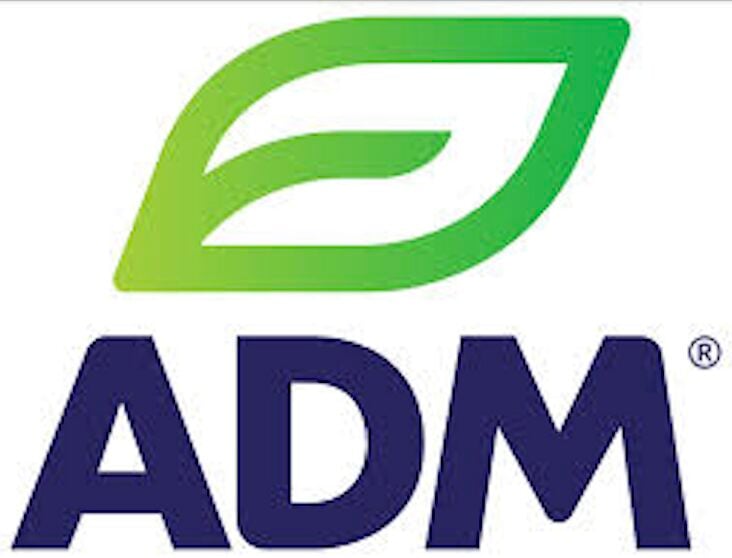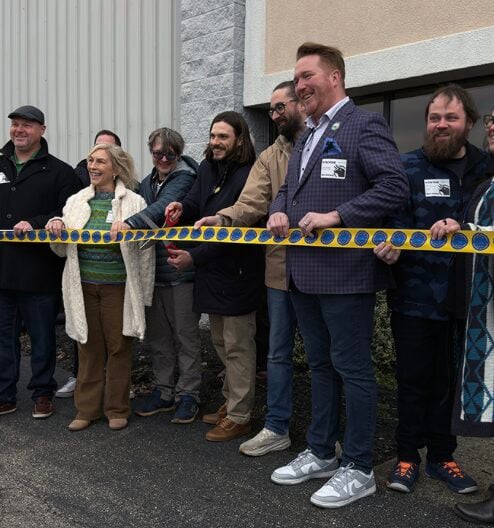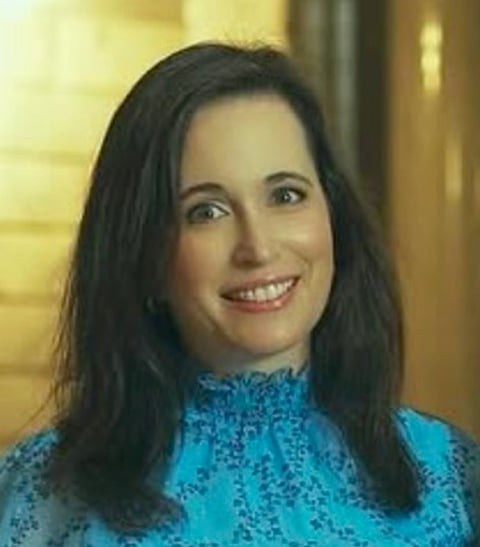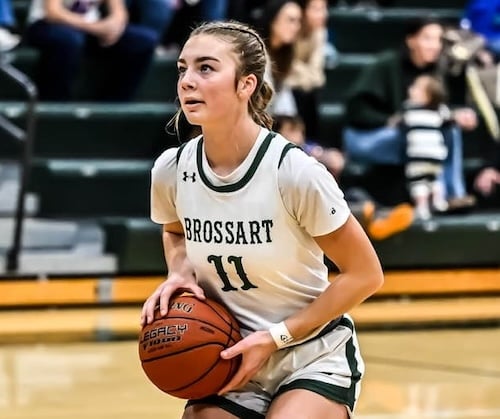A group of Northern Kentucky University students are headed to the nation’s capital for a national environmental technology competition this spring. They are developing a mobile app designed to reduce the carbon footprint of the university’s more than 15,000 students.
The students, from several disciplines, will participate in the final phase of the U.S. Environmental Protection Agency’s People, Prosperity and Planet (P3) competition, where they will unveil the app prototype in April. This follows the initial round of the competition, after which the EPA awarded the group a $15,000 grant to develop the app.
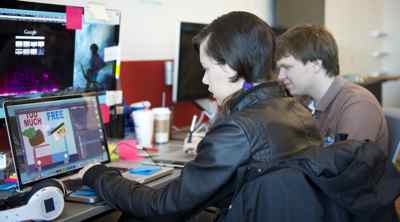
In future phases of their project, students plan to create an app allowing drivers to monitor their pollution contribution and providing information on how pollution-saving decisions contribute to the community’s clean air.
Christine Curran, NKU associate professor of biological sciences, said she is impressed with how students worked together to accomplish a complex goal.
“With NKU’s focus on transdisciplinary education, this project brings several disciplines to the table,” Curran said. “An environmental scientist can tell you how much pollution is out there, and what effect the pollution will have. The key is how we communicate to people to get out of their cars – use public transit and…walk around the corner instead of driving.”
Curran also pointed out the potential financial benefits of the research the students are conducting, both for NKU and companies looking to cut back spending without slashing budgets. “It costs roughly $22,000 for one parking spot in one parking garage,” she explained. “In turn, there is a great benefit in keeping cars off campus.”
Zachary Hart, chair of the NKU Department of Communication, has several students in the department taking on the messaging strategy. The research students have done to measure and change pollution output can only be successful with a strong message, he said.
“This project has been very motivating,” Hart said. “It’s been so amazing to see students from multiple disciplines come together for a common theme. They can see that there are different components, and it is a very real-world experience for them. This is how projects operate, it takes many people to succeed.”
Hart explained that the app will show people how much they are saving by using public transportation or carpooling versus driving their car. It will be in a game format to maintain user interest and will show users how each choice will immediately impact them, and the long-term effect individual choices have on the environment.
“Communication students have done a lot of research of other schools and universities, on how they have promoted this type of effort,” Hart said. “At the phase two competition in April, students will bring a prototype of the app, and if we win, we will hopefully be able to take that design to application and actually implement the app.”
Hart also emphasized the importance of students being able to apply what they are learning to real world scenarios.
“Almost all things have a communicative aspect to them,” he said. “There is always a target audience and a process of figuring out the most effective way to reach that audience. With the app’s development, students are evaluating what motivates people to carpool, and that person’s interest in it, which is usually money or time savings.”
Morgan Lyons, an environmental science major at NKU, has been researching health-related issues that come from air pollution and the economic benefits of drive-share programs. Her role is to help communicate the importance of maintaining a clean environment.
“I have always had an interest in geology, since I was a little girl,” Lyons said. “I just want to protect the Earth and animals. It is so important to inform people about the benefits of keeping this planet clean. Just because you can’t see pollutants doesn’t mean they are not there.”
Lyon’s passion for the Earth led her to participate in the project, but she acknowledged that there is more to it than saving the planet. “It has been interesting to realize the impact of the environment on our health,” she said. “The environment is everything, and this opportunity has opened my eyes. Air pollution affects our health on so many levels.”
Although the project is currently based at NKU, the eventual the goal is to provide a template to major companies looking to cut their own carbon footprints.
“We are not trying to accomplish a theoretical project,” Curran said. “We want to influence what happens at our university and in the Greater Cincinnati area. In the end, we will have safer and less congested highways, a cleaner environment to live in, and people who exercise and are all-around healthier.”
From NKU







